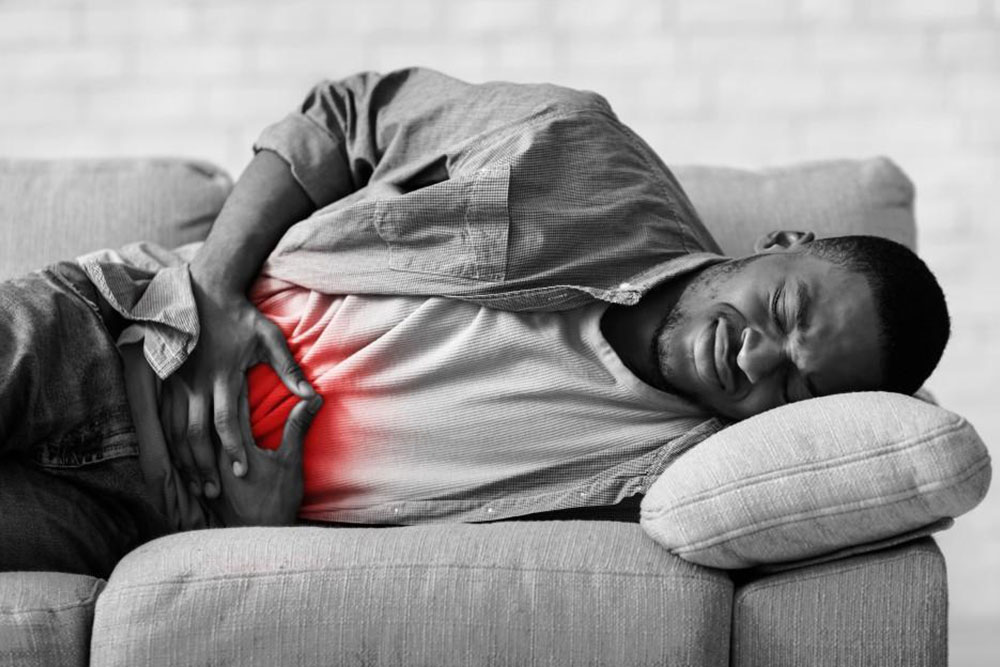
Pain in the stomach does not always happen in the abdomen. It is an indicator of ulcerative colitis (UC) to some individuals. We shall answer some of the most common questions such as how do you tell whether it is ulcerative colitis in the abdomen? And presence of chronic abdominal pains an indication of ulcerative colitis? We shall also discuss the symptoms, the distinction between normal cramps and UC pain, and the need to see the doctor.
We are also honored with the contribution of Dr. Bharat Pothuri, who is our gastroenterologist in the lead position at GastroDoxs in Houston. We want to make you know your body, learn when you need any help and be hopeful in treatment.
Ulcerative colitis is a long-lasting disease associated with inflammation and ulcers (sores) in the inner layer of the large intestine (colon). It is a part of a series of illnesses known as an inflammatory bowel disease (IBD).
Dr. Bharat Pothuri elaborates on the fact that Ulcerative colitis is not tummy trouble. It is an immune mediated disease where the lining of the colon gets irritated and bleeding.
Patients with UC frequently complain of abdominal discomfort of different severity. This is the main symptom of abdominal pain by ulcerative colitis:
The symptoms may coincide with other digestive complications. That is why it is important to know how to understand whether abdominal pain is ulcerative colitis.
Being aware of pain that is associated with UC will allow you to receive prompt treatment. To know whether the pain in the abdomen is ulcerative colitis, do this:
According to Dr. Pothuri, Think Beyond Simple Cramps: When your pain in your belly comes with blood in your stool or unexplainable weight loss. It is then that one should speak to a GI specialist.
An easy comparison table is given below that will draw the line between ulcerative colitis pain and regular menstrual or digestive cramps.
| Characteristic | UC Pain | Normal Cramps |
| Onset | Gradual or sudden, lasts days to weeks | Frequently associated with eating or interval |
| Location | Lower left abdomen, spreads upward | Lower abdomen or pelvic area |
| Associated Symptoms | Include Blood in stool, acute diarrhea, weight loss | Nausea, bloating, mild diarrhea |
| Response to OTC Relief | Partial or no relief | Mostly responds to NSAIDs or heat |
| Fever | May be present | Rarely |
| Fatigue | Common | Uncommon |
There can also be awareness of when to visit a doctor and this can change things. This is a fast reference on when to visit a physician because of abdominal pain and UC:
Early calling of patients in GastroDoxs is encouraged in Houston, says Dr. Pothuri. Treatment of the disease at an early age results in improved life quality and early treatment.
Chronic abdominal pain refers to pain that has taken over three months. It is not always indicative of UC, however, it may be one showing particularly when you have other GI symptoms.
In case you said yes, explain to your doctor about the presence of chronic abdominal pain as a symptom of ulcerative colitis.
The National Institute of Diabetes and Digestive and Kidney Diseases recommends colonoscopy as necessary in the diagnosis and monitoring.1
Inflammation can be controlled to alleviate pain once it is diagnosed. Here are common treatments:
Dr. Pothuri makes us remember, A team approach in our Houston clinic allows patients to learn how to handle pain, have a better diet and daily support.
Hopefully, this guide will provide some answers to your queries on when pain abdominal may be an indication of ulcerative colitis. GastroDoxs is in Houston and can provide you with the expert care that you need. Dr. Bharat Pothuri is here to make you live a comfortable life once again.
Search pain associated with diarrhea, blood in the stool, fever and weight loss. The pain of UC tends to reduce following the bowel movements.
It is common in cramping, bloody diarrhea, urgency to go, bloating, and fatigue.
UC pain is also deeper and can take up to days and may not respond to over-the-counter medicines completely. Normal cramps are mild and are associated with food or menstrual cycle.
Pain more than 48 hours, stool containing blood, high fever, and/or lose weight, they mean it is time to see a specialist in gastroenterology.
It may be, in particular combination with other UC symptoms. Other causes may also be the cause of chronic pain alone.
Using blood tests, stool tests, colonoscopy and biopsy, and. in some cases, imaging (CT or MRI).
Yes. Discomfort may be minimized by eating small meals, avoiding foods known to cause disorders and keeping dehydrated.
As medications, 5-ASA medications, corticosteroids, immunomodulators, biologics, and JAK inhibitors assist in the management of inflammation and pain.
GastroDoxs in Houston has colonoscopy, custom diets and a team of GI professionals to turn you around.
Check out the details provided by the NIH about UC or the review of ulcerative colitis provided by Mayo Clinic.